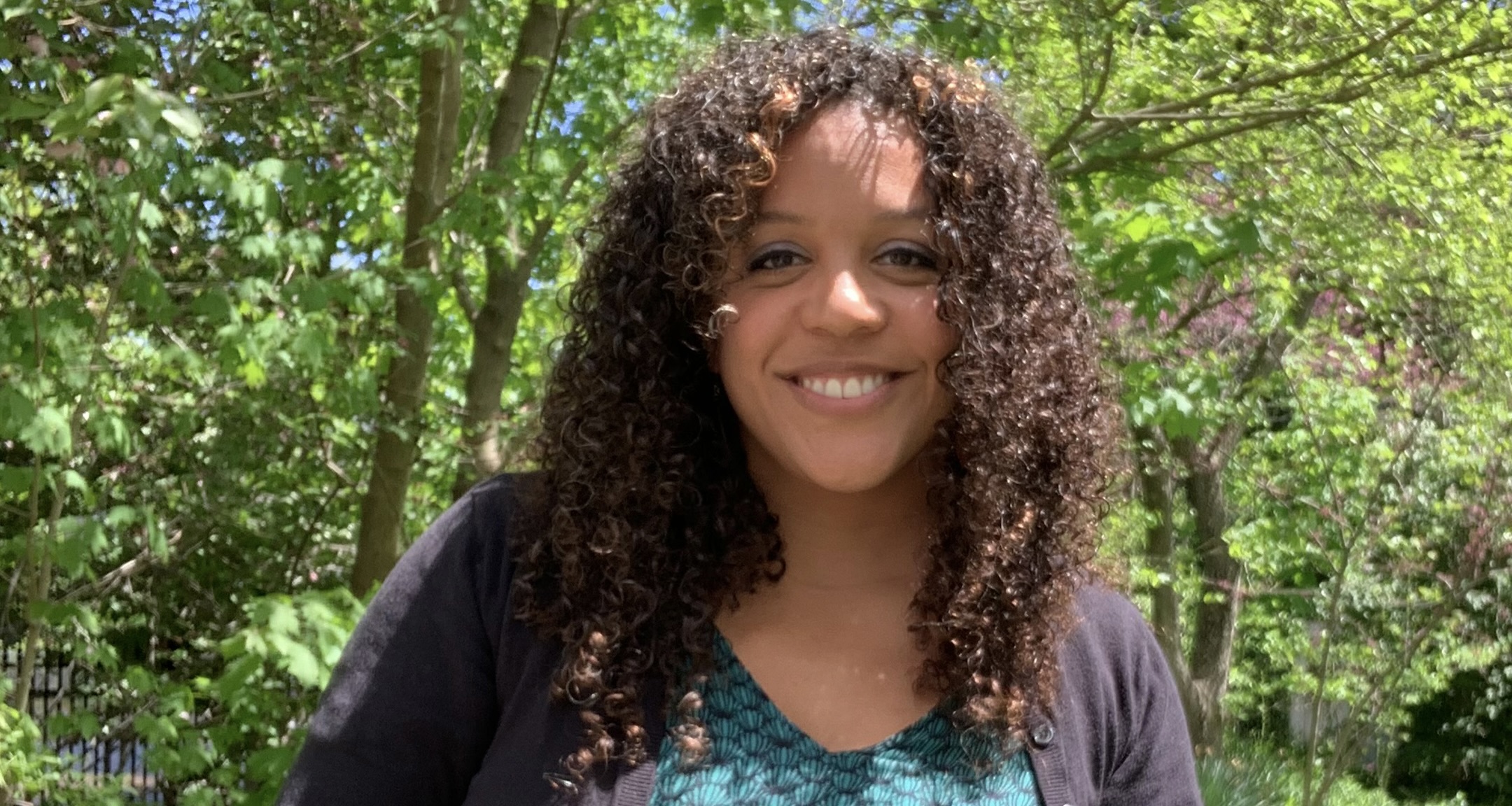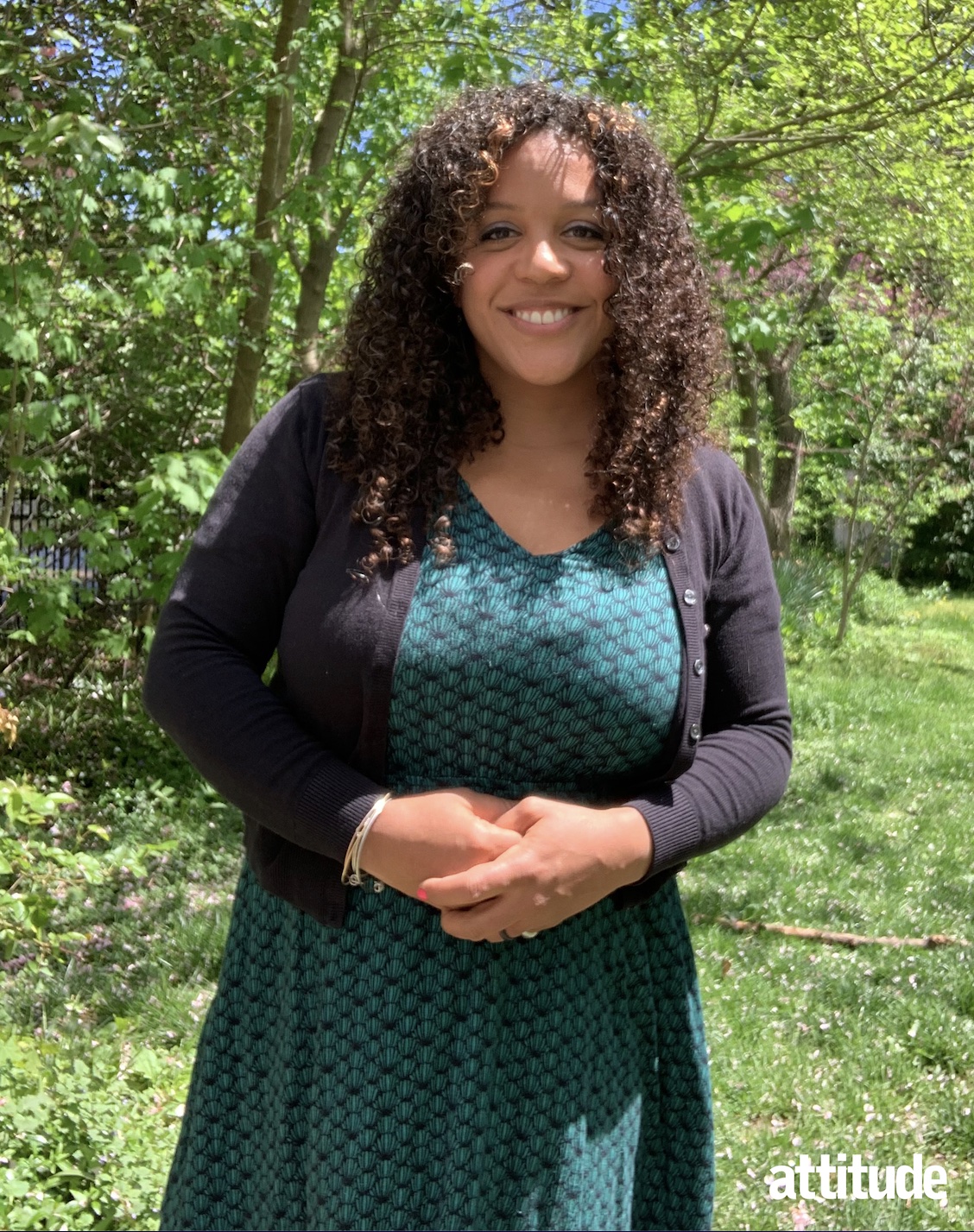Meet the evolutionary biologist and queer activist debunking myths about scientists
Dr. Jessica L Ware challenges racism, sexism and homophobia in science as she leads the Attitude 101 STEM category.

Words: Dr Alfredo Carpineti; pictures: Provided and Entomological Society of America
Leading our Science, Technology, Engineering, and Maths category for the Attitude 101 issue, empowered by Bentley, Dr. Jessica L Ware is an evolutionary biologist, whose work seeks to reconstruct the past 400 million years or so of insect evolution, with a particular focus on dragonflies and damselflies.
A curator at the American Museum of Natural History in New York City and co-founder of Entomologists of Color and #BlackinEnto, she has spoken at events such as the inaugural March for Science – created to protest against the Trump administration.
Previously featured on the Getting Curious podcast presented by Queer Eye star Jonathan Van Ness, Ware is the empowering juncture at which scientific excellence and queer activism meet.
You can check out the full list and interviews with some of those included in the Attitude 101 issue – out now to download and to order globally.

Photo: Entomological Society of America
Was there anything in particular that pushed you towards pursuing a career in science?
I like the idea of discovery and I’m a curious person. But also, I think I’m really stubborn and I don’t like being told what to do. This is a pretty good job for that because you get to be your own boss, in a way: you’re designing what your day is like, and your experiments and things like that. I really enjoy that you can work as a team, but you can also be pretty independent.
You do some incredible work in activism. You started Entomologists of Color and #BlackinEnto. You were a spokesperson at the March for Science. What motivates you to keep fighting injustice within science and wider society?
I think it’s my lived experience. The whole time that I’ve been in science, there have been changes, but not as fast as we would like to see. There are very few Black women that have PhDs in science. And it’s not because of a lack of interest, right? It’s because of historical barriers that are in place, which have prevented full participation. The same is true for queer people. I just think that in general, when we picture what a scientist looks like, we don’t often see ourselves reflected in what society thinks a scientist looks like.
This [lack of representation] has really big consequences, not just that we’re not represented in the academy, but it impacts policy decisions that have to do with healthcare and medicine, conservation, and the future of the earth. Decisions that all humans are invested in.
I think that the time of exclusion is over. I really want to make a space in science where a young Black trans kid could be the president of a Science Society. My child is trans and I want all the doors to be open, all the possibilities to be open to him.
But right now, we’re not there. There’s a lot of transphobia and homophobia, there’s a lot of sexism, a lot of pervasive racism in science, and to change those things requires a constant, steady effort. Because if they were just going to change on their own, they would already have changed. It actually requires people to actively make decisions and do the work to change those things.

What sort of barriers persist in science?
We don’t all have the same access to resources. This is in part because of historical barriers. Countries are kind of divided between who gets good schooling and who gets the schooling that is subpar. Also, access to green spaces, capacity-building, skill-building, because those are kind of centralised in certain neighbourhoods and not others. Economics and classism are also linked in the history of colonialism, which has centralised wealth in the Global North, which disadvantages people in the Global South from access to science. This perpetuates a white, heterosexual majority in science.
The culture within science and society is really hetero-sexist; it is really biased towards certain people. So even if people do make it in, they may not necessarily be retained, because the culture is prohibiting you from being able to thrive and be yourself.
Those pervasive issues need to be addressed before we can really see a big change. It’s not an easy problem to fix because it is so deeply rooted in the history of recent human times and colonialism.
You are brilliant at talking about your work, as we heard on a recent podcast with Jonathan Van Ness. Is there any aspect of it that is usually a misconception that you’d like to clarify?
One misconception that I had before I became a scientist was that scientists somehow had something special within them. They were born knowing the right questions to ask and they all came up with brilliant ideas. The science experiment was envisioned, executed, and then there was a paper with the results.
That’s not science. None of us has anything that’s really special, other than our curiosity. A lot of science is trial and error. A lot of science is going to the field and happening to see a dragonfly do something and thinking, I wonder why they do that? And then it might take two years of trying this and trying that, making mistakes, trying something different before you actually formulate a real, testable hypothesis that can actually be executed and get the data.
I think that if more people knew that, maybe science would seem less intimidating. This idea that scientists are some special type of person… They’re not! They’re just like everybody else. You could do science. My nana could do science. She’s 95 and she collects dragonflies now and makes observations. Anyone can do science.
I wish people were less intimidated and realised that it’s like when you’re cooking. You test that recipe, it doesn’t taste good; you do something different next time. That’s science. That’s all we’re doing. No mystery.
What kind of changes do you hope to see in entomology or wider STEM fields over the next decade?
In 10 years, I would like to be at a faculty meeting and not be the only Black queer person in the room. I’d like to see a science where it’s not how much money you spend that’s valued, but the quality of the science that you’re doing. I think if in 10 years, we were there, where you could look around a conference, you could look around a meeting of colleagues, and see many people that have shared lived experiences with you, that would be terrific. That would be ideal. Maybe we won’t be there in 10 years, but we could start chipping away at these things.
Check out the full, detailed list in the Attitude 101 issue, which is out now to download and to order globally. The Attitude 101 issue includes the FREE Attitude 2022 calendar, presented in association with Taimi.
Subscribe in print and get your first three issues for just £1 each, or digitally for just over £1.50 per issue.

